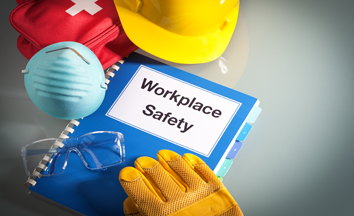COVID-19 and workplace health and safety
Get information and tools to help you protect workers, customers, and the public from COVID‑19 and other infectious respiratory illnesses.
Develop and update your workplace safety plan
Create a safety plan for your workplace
Use the free, easy Workplace Safety Plan Builder to develop a customized and adaptable plan for your business based on the COVID‑19 risk factors in your workplace.
For more information on what a safety plan is and how to limit the spread of COVID‑19 in workplaces, read the guide to developing your COVID‑19 workplace safety plan.
Check that your plan aligns with your responsibilities
As an employer, you must make sure you understand and comply with all legal requirements.
Get more information and support
Sector-specific organizations
Infrastructure Health & Safety Association (IHSA)
Find front-line prevention programs, services and information for construction, electrical, utilities, aggregates, natural gas, ready-mix concrete and transportation sectors.
Public Services Health & Safety Association (PSHSA)
Find front-line prevention programs, services and information for Ontario’s public and broader public sector employers.
Workplace Safety & Prevention Services (WSPS)
Find front-line prevention programs, services and information for manufacturing, agricultural and service sectors.
Workplace Safety North (WSN)
Find front-line prevention programs, services and information for the mining and forest products industries, as well as businesses across northern Ontario.
Other supports
Occupational Health Clinics for Ontario Workers (OHCOW)
Find occupational disease information and clinical services, including medical diagnostic services.
Workers Health and Safety Centre (WHSC)
Find training for workers, supervisors, health and safety representatives, joint health and safety committees and employers.
Workplace Safety and Insurance Board (WSIB)
Learn about no-fault collective liability insurance and access to industry-specific health and safety information.
Public health unit locator
Find your local public health unit website for the latest information on COVID‑19 risk levels and public health advice for your community.


